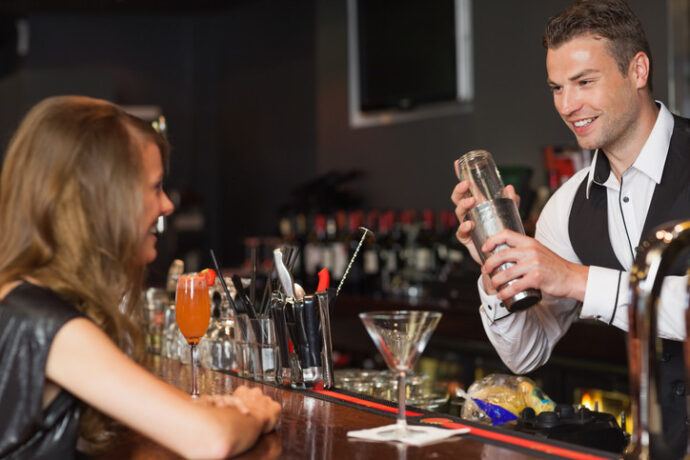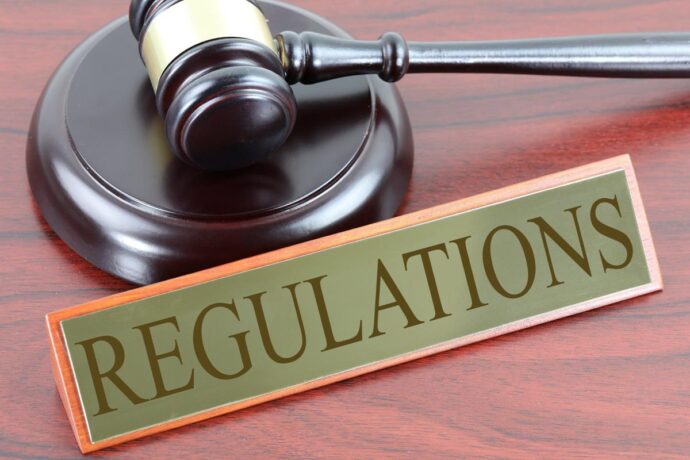RBS is a method and strategy businesses use to guarantee that alcohol is supplied and provided responsibly and securely. Staff members are taught how to identify and avoid over-service, recognize indicators of drunkenness, and handle instances where guests have had too much to drink.
RBS training focuses on responsible alcohol service methods, alcohol-related rules and regulations, recognizing and dealing with drunk customers, and methods to prevent underage drinking. The intention is to avoid alcohol-related incidents while enabling customers to consume alcohol responsibly and safely.
Businesses that sell alcohol frequently need to undergo RBS training, and many states and municipalities, like California RBS training, have specific laws. It is also possible for venues that serve alcohol to implement strategies such as limiting the number of drinks a customer can purchase at once, providing food, and promoting designated drivers to encourage responsible drinking. Establishments may make the environment for customers safer and more pleasurable while also lowering liability and risk by encouraging reliable alcohol service.
RBS Training’s Advantages For Business

Businesses that sell alcoholic beverages can benefit in many ways. The following are some of the main benefits of RBS training:
- Many states and municipalities demand that businesses that serve alcohol train their staff in RBS. By offering this training, companies may ensure they keep up with laws and avoid fines or penalties.
- Companies can lessen their burden in the case of occurrences involving alcohol by training workers in appropriate alcohol-serving methods. This might shield the company and its staff against lawsuits and monetary losses.
- This may assist personnel in providing better customer service by ensuring that clients are handled securely and ethically. Increased client satisfaction and loyalty may result from this.
- Training may make a place safer for both customers and employees by reducing overservice and spotting indications of drunkenness. This can lessen the chance of situations linked to alcohol, such as arguments, mishaps, and other types of injury.
- This is a reasonably inexpensive technique to enhance alcohol service and lower the probability of events involving alcohol. The advantages of training, such as decreased insurance rates and liability risk, frequently outweigh the costs.
What Business Owners Must Understand About RBS Laws And Regulations

Owners of establishments that sell alcohol must be familiar with the RBS regulations and laws that apply in their state and community. The following are some essential facts concerning its legislation and regulations that company owners should know:
- Many states and municipalities demand that establishments that offer alcohol teach their workers in RBS. Company owners must learn about and follow the local requirements for RBS training because these requirements might differ by state and region.
- Business owners may be held responsible for all occurrences involving alcohol on their property, such as fights or drunk driving accidents. Business owners can decrease their responsibility and save themselves from legal action by offering this and implementing responsible alcohol service practices.
- It is against the law to provide alcohol to children, and establishments that do so risk severe fines. Business owners must establish rules to stop underage drinking, such as verifying IDs and teaching workers how to spot false IDs.
- “Dram shop” rules hold companies accountable for alcohol-related occurrences that occur off-premises, such as drunk driving accidents. Owners of businesses must be aware of these rules and take action to avoid overservicing.
- Entrepreneurs that break the rules and laws may be subject to fines, license suspension or termination, and possibly criminal proceedings. Company owners must remain current on rules and regulations to prevent these fines.
Why It’s Important To Hire Trained Staff

Businesses that provide alcohol must hire skilled workers to stay in line with laws and avoid over serving customers. With trained workers, alcohol-related incidents may decrease since they can better spot drunkenness symptoms and avoid providing excessive service. RBS training for employees is a requirement in many states and municipalities, which may assist in assuring cooperation and prevent fines or other penalties.
Employing qualified staff can increase customer satisfaction, lower liability in incidents involving alcohol, and show professionalism and responsible alcohol service. This can boost client happiness and loyalty while lowering liability in the case of occurrences involving alcohol.
Additionally, professionals can better deal with challenging circumstances, such as recognizing and managing drunk customers, which can help shield the company and its employees from legal action and financial losses.
Various RBS Training That Is Offered

Businesses offering alcohol can choose from multiple Responsible Beverage Service (RBS) training programs. It comes in various formats: online, in-person classroom, on-site, mobile, and train-the-trainer programs.
Businesses may engage with a certified trainer to ensure their staff receives the training required to offer responsible alcohol service. They can select the style of training that best suits their requirements and budget. The following are some of the most specific programs:
- The in-person classroom instruction approach entails a trainer guiding students through the RBS training materials. Interaction with other participants and hands-on learning are possible during this.
- Online training is a practical and adaptable alternative that enables participants to finish the training quickly. Interactive modules and quizzes are frequently used to ensure participants grasp the subject.
- For on-site training, a trainer travels to the company to instruct the personnel in RBS. Staff employees who find it challenging to attend off-site training may find it more convenient and can be adapted to the company’s unique needs.
- A recent alternative, mobile training, enables users to finish instructions on their mobile devices. It may be conducted anytime, anywhere, often including interactive modules and tests.
- Train-the-trainer programs are for companies that wish to teach employees to instruct others in RBS. For some staff members to educate other staff members, this form often includes a trainer offering education and resources to those staff members.
How To Choose An RBS Training Program

Selecting the best program for your company is crucial to guarantee that your employees receive high-quality training that complies with state and local regulations. When choosing an RBS training program, consider the following questions:
- What credentials does the trainer possess? Picking a coach with information and involvement with qualified liquor distribution is basic. Choose a trainer who holds accreditation or certification from a reputable organization.
- What sort of preparation is being given? Check to see if it comes in person, online, or elsewhere. Consider each option’s schedule and location requirements to select the format that meets the needs of your business and employees most effectively.
- How long will this take? Kindly figure out the length of the program and whether it conforms to neighborhood and state guidelines. Check to see that the program you choose meets your state’s requirements, as some mandate a minimum number of hours or modules.
- What does it cost? Please find out how much the program will cost and whether it fits within your budget. Be aware that the price of the course may change based on its structure, length, and instructor experience.
- What exactly does the program cover? Find out what subjects and modules the program covers and whether it complies with local and state regulations. Look for a curriculum that addresses issues like spotting drunken behavior, preventing over-service, verifying IDs, and handling challenging circumstances.
Conclusion
Responsible beverage service (RBS) training is crucial for companies selling alcohol. It helps businesses comply with local and national regulations while ensuring safe alcohol service. By investing in RBS training for their staff, owners can protect their customers and avoid legal or financial issues.
When choosing an RBS course, consider the trainer’s expertise, course structure and duration, cost, and the specific topics covered. Proper training helps create a safe environment for customers and mitigates risks for the business.















